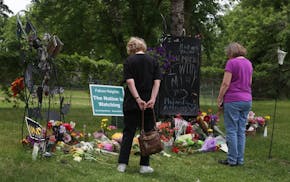Proposed restrictions on outdoor seating areas of bars and restaurants drew a cool response from the City Council panel that oversees Minneapolis' regulatory efforts.
The proposal would impose new standards on establishments outside downtown. It would bar amplified music after 10 p.m. in the outdoor areas, set outdoor occupancy limits, require that a phone number for complaints be posted and require bars to monitor outdoor areas for problems.
Regulatory staff members said that, given neighbor complaints about noise and other problems, it's time for the standards.
But the measure foundered on two issues.
Council Member Lisa Goodman, representing downtown, argued that the exclusion of downtown is defined too mushily. She said that current city noise limits work well for outdoor seating downtown, and she sees no need to change them. Other council members felt the occupancy limits are imprecise.
The panel told the staff to work on the proposal for another two weeks.
Two other measures also got lukewarm receptions at Monday's meeting. One would tighten a regulation requiring liquor stores to be at least 300 feet from the nearest church or school, as measured from main door to main door. The proposal would change that to a more stringent 300 feet from property line to property line.
Daniel Kerkinni, who would like to open a 2,100-square-foot specialty liquor store in Uptown Square at 2546 Hennepin Av. S., said Council Member Meg Tuthill devised the proposal after he told her of his plans.
Tuthill said she's been contacted by people concerned about the proposed store's location across Hennepin from Jefferson Community School, 1200 W. 26th St. Neil Meyer, an attorney for Uptown Square's landlord, said the gap is perhaps 250 feet under the lot-line definition, but he said the separation imposed by four lanes of Hennepin should be considered.
Ultimately, the proposal was forwarded to the council without a recommendation for approval. But Council Member Elizabeth Glidden, the panel's chair, expressed doubt that it will be ready for a vote.
Meanwhile, a proposal that would add a biennial inspection requirement for older furnaces in rental properties, an energy audit for single-family rental homes and new lead safety requirements for rental buildings of up to three units was deferred in the face of landlord complaints about over-regulation. The staff was told to see if the proposal could be integrated with a planned rental licensing switch that gives top priority to the most problematic buildings.
Steve Brandt • 612-673-4438

Falcon Heights, St. Anthony move toward renewing police partnership severed after killing of Philando Castile
January assault on elderly man turns deadly, marking eighth homicide in St. Paul

Israel-Hamas war creates 'really fraught times' at Minn. colleges

Florian Chmielewski, former senator and Funtime Band accordion player, dies at 97

